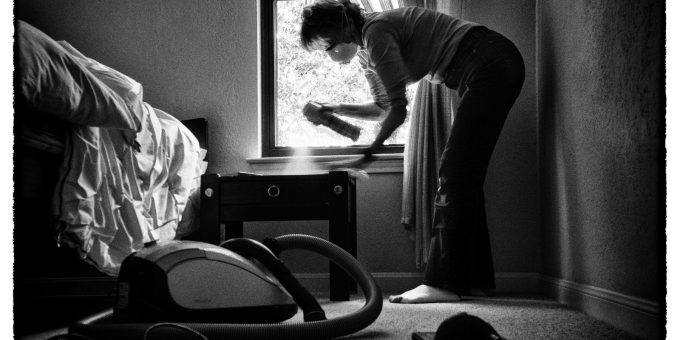
Zip codes don't lighten women's workloads. Anne Worner, Flickr CC
Urban Upkeep
Does living in a city change how heterosexual married men and women divide up chores? In Gender & Society, Natasha Quadlin and Long Doan investigate whether location affects the gendered division of household labor.
American society has long stereotyped certain household tasks as “female-typed chores,” such as cooking, laundry, dishes, grocery shopping, and cleaning, and others as “male-typed chores,” like automobile maintenance, repairs, and outdoor work. Quadlin and Doan explain that because people living in urban areas typically have less outdoor space and fewer vehicles than people in rural and suburban areas, these male-typed chores hold less relevance for city-dwellers. So does this mean married urban men take on more female-typed chores to balance housework duties with their female spouses? In a word: no.
Using data from time diaries, the researchers found that heterosexual married men in urban areas did spend fewer minutes per day on male-typed chores compared to men in rural and suburban areas, but they spent roughly the same amount of time per day—a little over 30 minutes—on female-typed chores. By contrast, women across rural, suburban, and urban areas spent significantly more time on female-typed chores: over 100 minutes per day on average (with a dip among the highest-income women).
The bottom line? Married women’s zip code doesn’t lighten their workload.

Comments 1
Regina
June 21, 2019Its true married women's zip code doesn't lighten their workload.
We might expect urban men to step up their contributions to female-typed chores, for a couple reasons – they have time available because they’re not spending time on male-typed chores, and they tend to believe in equality than their rural and suburban counterparts.
In urban areas same men are ready to assist in house chores than rural areas because the y spend most of their time in their homes than rural men. Rural area men have activities like herding cattle, hunting, cultivating etc whereby they dont spend most of their time at home.